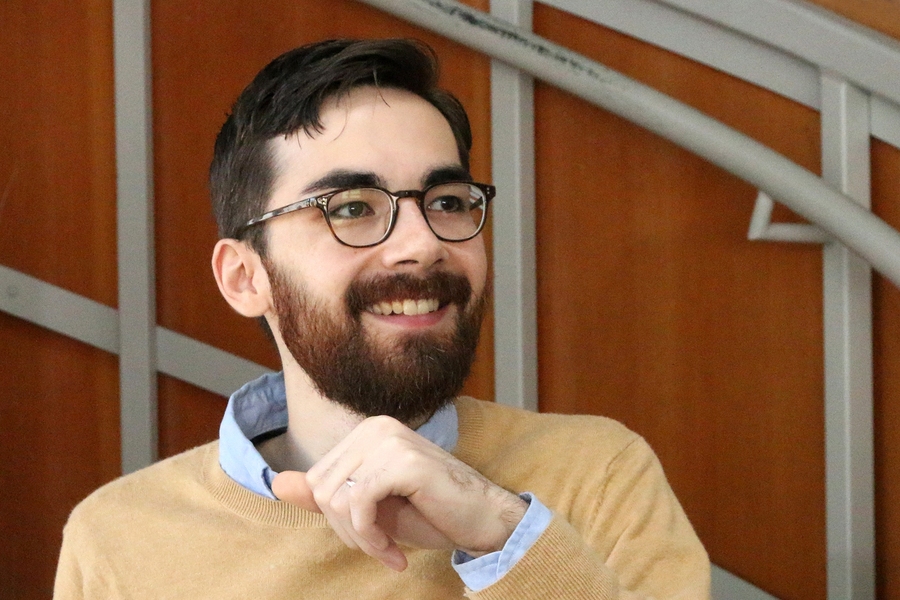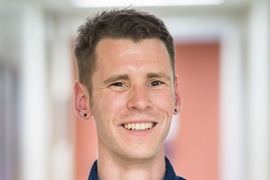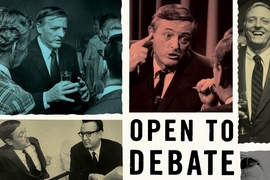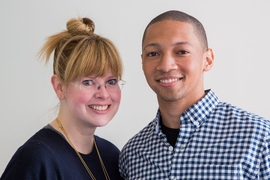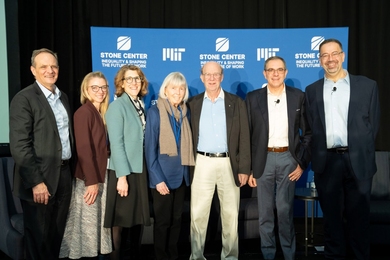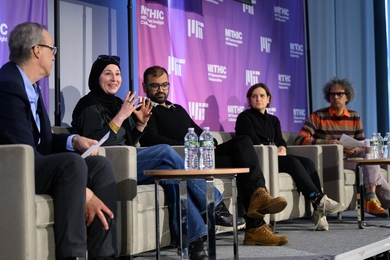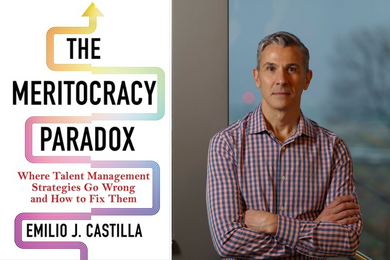Why would a politician publicly contradict himself? What does it mean to call someone a racist? Can you control hate speech without eroding free speech? What happens to democracy if truth is subjective?
These are among the rich range of topics discussed in 24.192 (Language, Information, and Power), an undergraduate philosophy seminar taught by Assistant Professor Justin Khoo. Offered for just the second time last fall, the class explores philosophical and political issues surrounding discourse, with a focus on connecting philosophical ideas to current controversies about speech.
“The class has been a great space for discussion about very relevant issues we face today. In 24.192 we regularly engaged on topics of bigotry, ideal political discourse, and the ever-growing polarization of partisanship and media sources,” says Joseph Edwards, a sophomore in electrical engineering and computer science. “This class has put philosophy and linguistics on the front line in terms of how we look at our cultures and societies.”
“We’re not just playing with ideas, but ideally articulating viewpoints in a way that can change hearts and minds,” says Khoo. “It’s a lofty goal.”
Philosophy of language as a framework for difficult questions
Readings range from classics of philosophy such as John Stuart Mill’s “On Liberty” to works by contemporary philosophers, such as University of Connecticut professor Michael Lynch, as well as a wide selection of opinion articles on such topics as censorship, racism, and the nature of truth in politics.
“We have to distinguish between what is objectionable within a certain context and the idea that a view should never be expressed ever,” says Khoo, noting that the philosophy of language provides a framework for considering such difficult questions. “When you call a person ‘racist,’ it’s not just the dictionary definition. You are judging them in a particular way. You are labeling them a bad person.”
With that in mind, is “racist” a useful label? Khoo says that the tool philosophy provides for considering such questions is abstraction — getting away from the particularities of today’s political firestorms to try to understand the fundamentals underlying language-related issues.
Truth and politics
For example, one evening this fall the class met in a Stata Center lecture hall to discuss truth in the context of politics while enjoying a buffet dinner provided by Radius, an MIT initiative that fosters greater engagement with ethics, and which served as co-sponsor of the course.
Rather than debating the latest headline-grabbing bit of news, however, Khoo introduced the class to the liar paradox. He wrote “This sentence is false” on the whiteboard and examined the challenges the sentence presents. “Things shouldn’t be both true and false. As soon as you talk about truth you come across some interesting paradoxes in philosophy,” says Khoo.
While belief is not the same thing as truth, and lying is commonplace, human interactions depend on the norm that people generally assert things that they know to be true, Khoo says. “Under what conditions would it be reasonable to try to get your belief into someone else’s mind just by asserting it if that rule weren’t widely adhered to?” asks Khoo. “Violations of these rules can’t be the norm, because if they were it’s hard to see how we could communicate at all.”
Nevertheless, Khoo notes, “There are rewards for flouting these norms. This is where we’re going to get political.” Citing an article by Lynch, he points out that a politician who contradicts himself can actually win people over on both sides of an issue — because, Khoo says, “Listeners can believe what they want.”
“The danger emerges when distrust undercuts the sources for truth in society. You give up on the truth and retreat to subjectivism: ‘All I know is the content of my own mind.’ That’s paving the path to authoritarianism. The point of democracy is to think about issues yourself,” says Khoo.
Applying philosophy to life
Students say the class has enriched their thinking about topical issues. “I talk about the subjects and the ideas we talk about in the class with people in my dorm,” says Lawson Kosulic, a junior double majoring in philosophy and physics. “Many of the frameworks we use in philosophy of language are very applicable to real-life situations.”
For example, the class discussed the effects that hate speech and subtler forms of discriminations can have on human behaviors. “Some people feel silenced by what other people are saying. This restricts the amount of information and perspective we get,” says Kosulic.
Edwards says, “We spent many hours approaching how we communicate our values and what effect communication has on our democracy. Finally, we discussed how much credence we give our information ... and whether academia offers us any factual security.”
The question of what to do about the issues raised in the class is answered differently by different philosophers, but Khoo says his point was not to give students answers but to provide resources for them to think through questions on their own. “The goal of the course is to create an open and friendly environment for students to talk about these issues,” says Khoo.
Kosulic says the class has gotten him thinking about how he uses language himself. “This is why I’m so interested in philosophy. When you take these classes, you see it takes something subjective and emotion-filled and makes it more structured. It lets you look at it in a logical framework,” says Kosulic. “When I go to class it leaves me feeling inspired. Every time there’s a new piece to the puzzle.”
